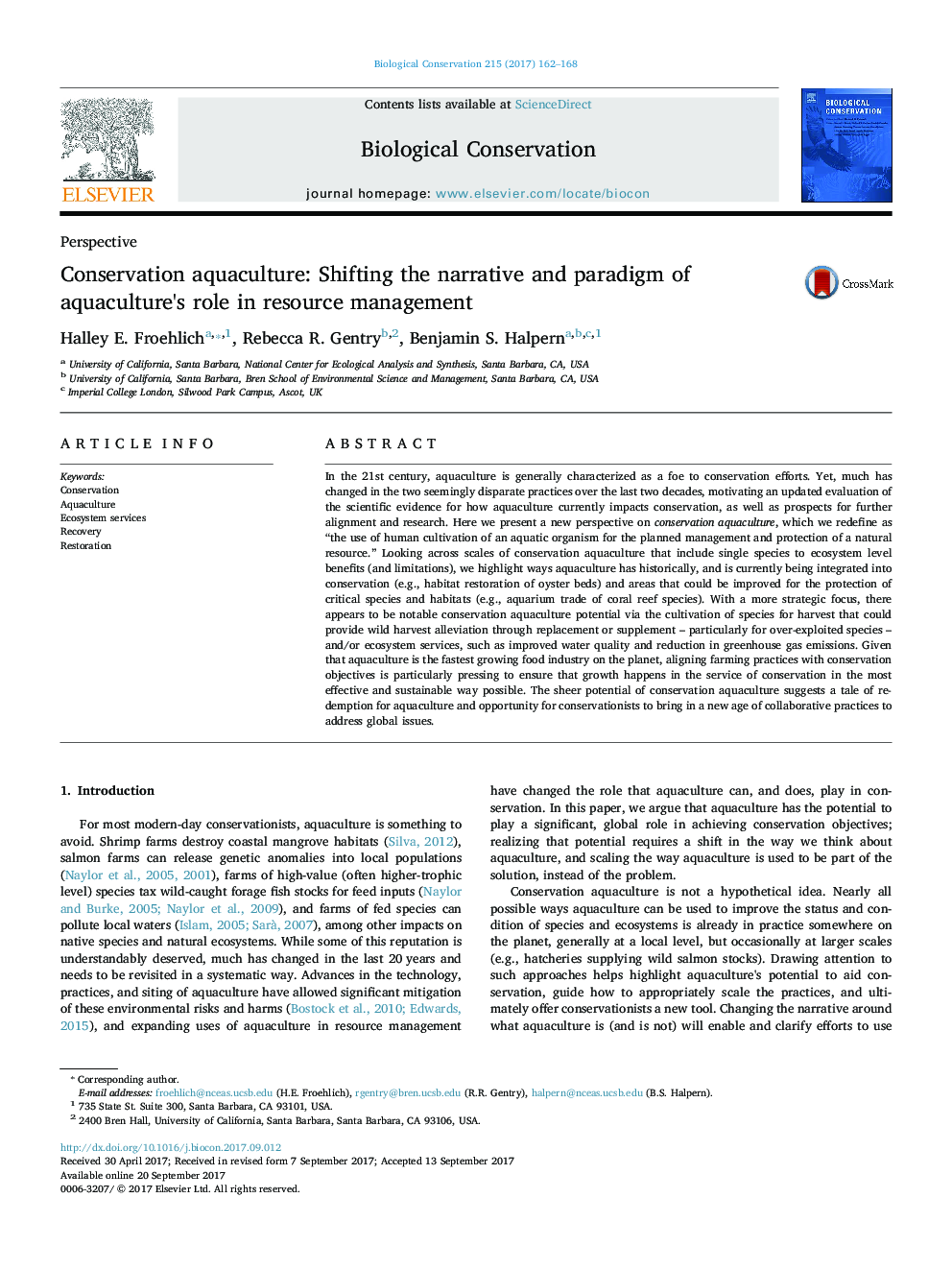| کد مقاله | کد نشریه | سال انتشار | مقاله انگلیسی | نسخه تمام متن |
|---|---|---|---|---|
| 5743012 | 1617890 | 2017 | 7 صفحه PDF | دانلود رایگان |
- We redefine conservation aquaculture (CA) to capture its current and potential role in conservation.
- Aquaculture practices are already part of the conservation portfolio.
- CA has great potential at the scale of species to ecosystems.
- Conservation objectives for aquaculture could contribute to more sustainable development.
In the 21st century, aquaculture is generally characterized as a foe to conservation efforts. Yet, much has changed in the two seemingly disparate practices over the last two decades, motivating an updated evaluation of the scientific evidence for how aquaculture currently impacts conservation, as well as prospects for further alignment and research. Here we present a new perspective on conservation aquaculture, which we redefine as “the use of human cultivation of an aquatic organism for the planned management and protection of a natural resource.” Looking across scales of conservation aquaculture that include single species to ecosystem level benefits (and limitations), we highlight ways aquaculture has historically, and is currently being integrated into conservation (e.g., habitat restoration of oyster beds) and areas that could be improved for the protection of critical species and habitats (e.g., aquarium trade of coral reef species). With a more strategic focus, there appears to be notable conservation aquaculture potential via the cultivation of species for harvest that could provide wild harvest alleviation through replacement or supplement - particularly for over-exploited species - and/or ecosystem services, such as improved water quality and reduction in greenhouse gas emissions. Given that aquaculture is the fastest growing food industry on the planet, aligning farming practices with conservation objectives is particularly pressing to ensure that growth happens in the service of conservation in the most effective and sustainable way possible. The sheer potential of conservation aquaculture suggests a tale of redemption for aquaculture and opportunity for conservationists to bring in a new age of collaborative practices to address global issues.
Journal: Biological Conservation - Volume 215, November 2017, Pages 162-168
